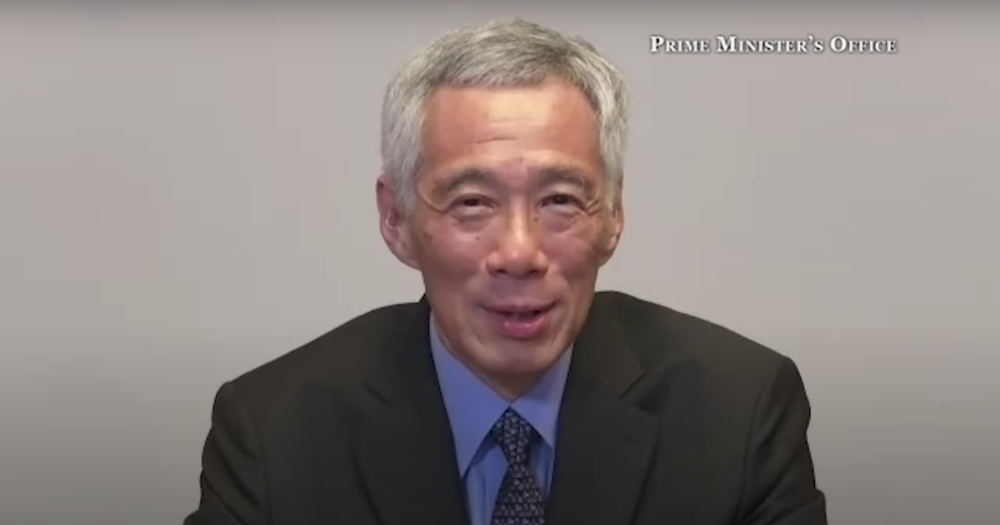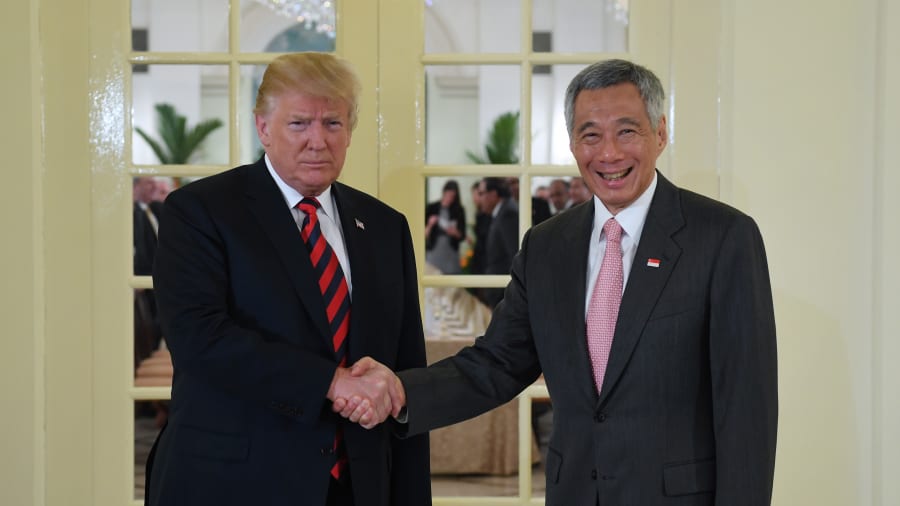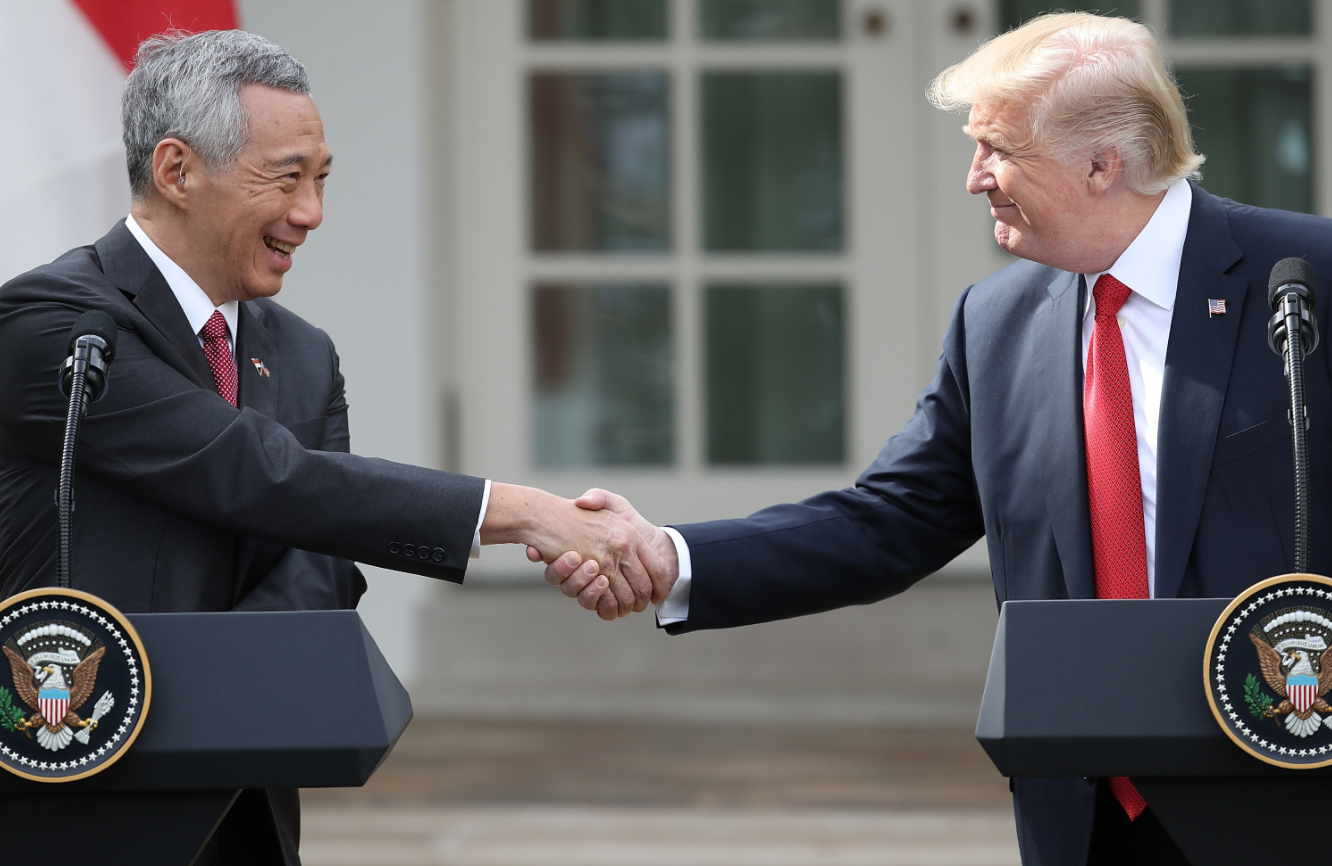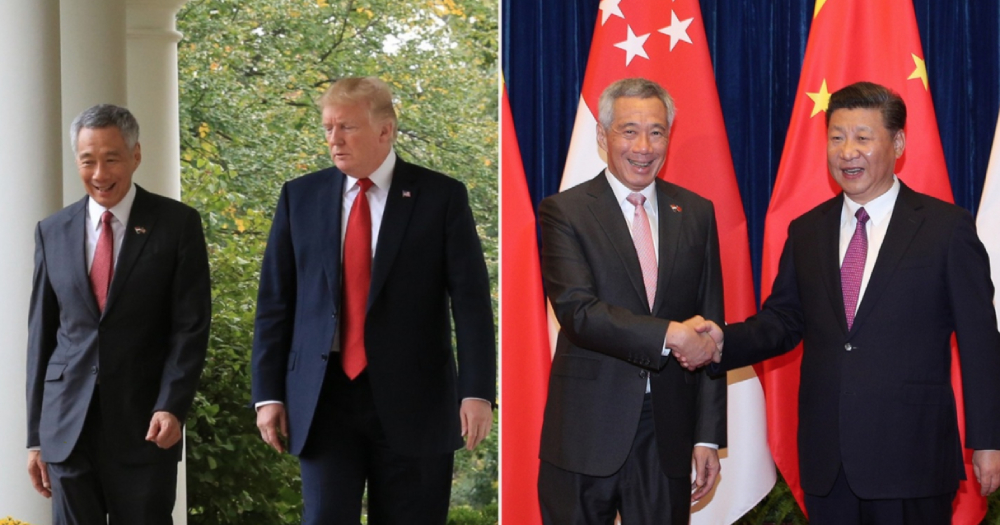Continued hostility towards China in the next administration in the United States will bode ill for the world, Singapore's Prime Minister Lee Hsien Loong opined.
Bipartisan consensus now that views China as a threat
PM Lee was speaking in response to American billionaire philanthropist David Rubenstein, who asked for his advice for the next American President at an online dialogue on Tuesday, July 28, organised by U.S. think tank Atlantic Council.
 Screengrab via Prime Minister's Office, Singapore/YouTube
Screengrab via Prime Minister's Office, Singapore/YouTube
Saying that historically, U.S.-China relations always get entangled in the U.S. presidential campaign, he said he fears animosity towards China might continue in the next administration.
The degree of animus and bipartisan consensus on treating China as a threat is "quite extraordinary", he said.
Should such hostility carry on past the election, it will bode ill for the world, he opined.
Deep distrust between U.S. and China "corrosive" to their relationship
On the escalating tensions between the U.S. and China, PM Lee said it is an unfortunate situation.
He said while it is normal between two powers to have both areas of contradiction and areas where they can work together, there are not only many areas of contradictions between the U.S. and China, but also "deep distrust".
This is "corrosive", and makes a difficult relationship "very dangerous", he added.
He explained that this is because U.S.-China relations is "the most important bilateral relationship in the world between a very powerful U.S. and a country with one quarter of humanity".
This is why he cautioned against a collision between the two powers, which is one of two things he worries about.
 Image via SAUL LOEB/AFP/Getty Images
Image via SAUL LOEB/AFP/Getty Images
Asian countries want good relations with both China and the U.S.
The other worry he has is the U.S. deciding they have no stake in the region, which leaves countries here on their own.
He said Asian countries all have good relations with China, and want good relations with China to continue.
But they also all have very deep relations with the U.S., and want to keep them at the same time.
He said for the U.S. to remain committed to the region, tend to its many interests, friends and investments in the region, it would require "a significant amount of attention" from the U.S., policy establishment from the State Department and from the White House.
And if the U.S. is disengaged from the region, a part of the world which has been crucial to the U.S. since the Second World War "may become a problem rather than an asset" to the country, he said.
Hopes the U.S. can stabilise relations with China
PM Lee also advised the next president of the U.S. to stabilise relations with China.
This is because countries in Asia depend on stable U.S.-China relations in order to have a secure and predictable environment in which they can make a living.
He also advised the U.S. to develop a bipartisan consensus on its foreign policy towards Asia so there is stability and predictability in U.S.-Asia relations.
If a bipartisan consensus is achieved, then policies can last beyond the current administration, and people can plan and depend on it, he said.
He raised the example of former U.S. President Barack Obama's rebalancing to Asia policy, which "many Asian countries" supported.
While Obama said the policy was "irreversible" when asked what would happen after his administration, the Trump administration had a different approach to the region, raising issues of compensation with the Japanese and South Koreans.
Trump talked about putting more emphasis on Asia, which is welcomed, but it is "quite a different mood from what Obama used to do", he said.
PM Lee also hoped that the U.S. can be a "great help to friends and partners who want to depend on the U.S. without the risk that one day the big power might decide its interests lie elsewhere".
 Image via Win McNamee/Getty Images
Image via Win McNamee/Getty Images
Hopes the U.S. can come back to trade agreement
He also expressed his hope that the U.S. can come back to the Trans-Pacific Partnership -- the Obama Administration's signature trade pact that has 11 signatories, including Singapore.
The Trump Administration decided to scrap it in 2017.
Should the U.S. come back to the agreement, it will not only be advancing its interests in the region, it will also be setting a dynamic in the region towards cooperation and the right rules which will help the region integrate, build trust, and raise standards for trade and economic exchange between countries.
He added: "Who knows if China decides to come back and join the game, and participate by the same rules, then there will be a win-win."
No government dealt with Covid-19 perfectly
PM Lee was also asked if he thinks people in Asia blame China for the Covid-19 pandemic like many in the West do.
While he does not think this is on top of people's minds, he said most think there have been missteps as after all, the Chinese government removed the provincial party secretary from Hubei and the party chief from Wuhan.
He added that China, however, have not revealed the missteps that merited these disciplinary actions.
However, he said there is no government that has dealt with the virus outbreak "completely perfectly" as it has been "a rapidly moving situation" that involves an "unknown new disease".
He added that governments are discovering and learning things as they continue to manage the outbreak, with some achieving better results than others at first.
"But the battle is not over and the jury is still out," he said.
You can watch the entire dialogue here:
Related story:
Top image via Prime Minister's Office
If you like what you read, follow us on Facebook, Instagram, Twitter and Telegram to get the latest updates.
